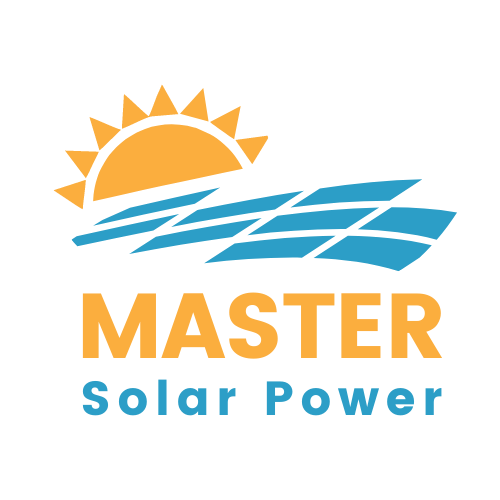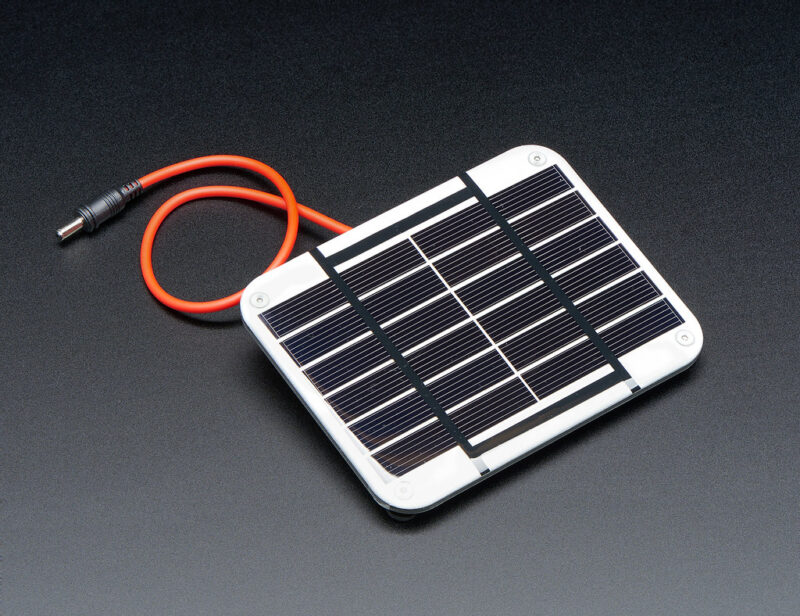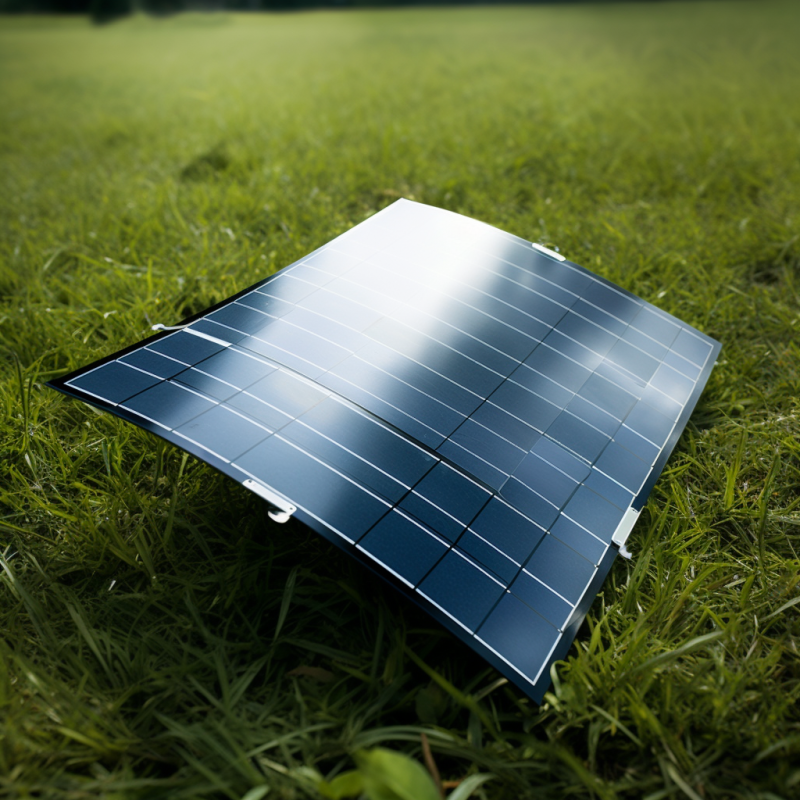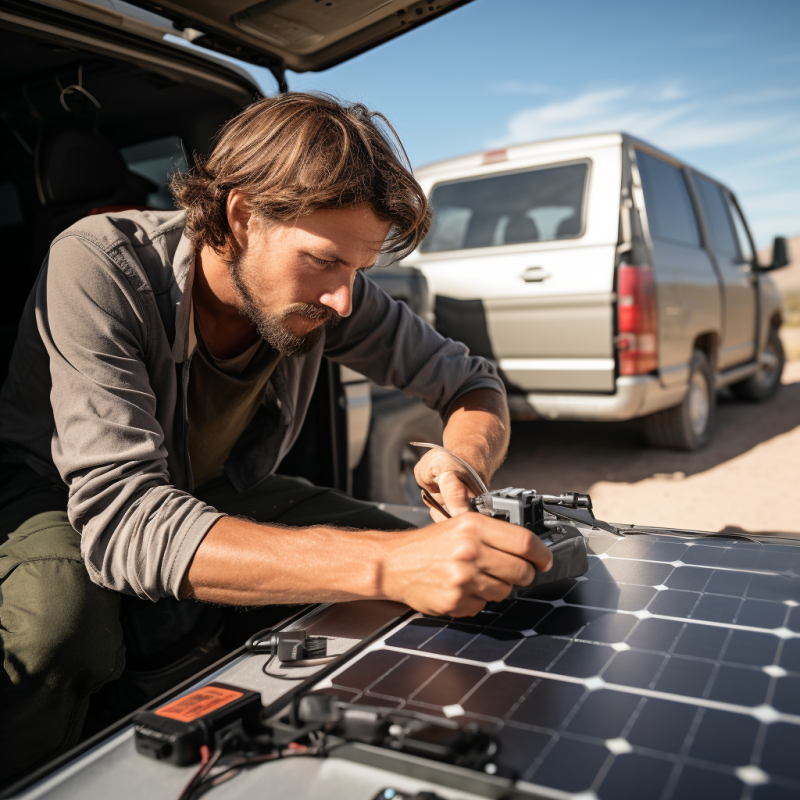We get commissions for purchases made through links in this post. But, we remain objective in our reviews, though. We appreciate your support!
Solar chargers are a great option for campers, hikers, and anyone who spends much time outdoors. When the effects of the pandemic are starting to subside and people are going out, this technology is becoming more in demand.

But with so many options available, it can be tough to know the best portable solar charger is right for you.
We have put together a list of the portable solar charger products available today. We have researched each one thoroughly and hope this article will help you find the perfect one for your outdoor trips!
In this post, we'll discuss:
What are portable solar chargers?
Portable solar-operated chargers, also known as portable solar panels or solar power banks, are devices that allow you to charge your electronics using the power of the sun. They come in various shapes and sizes, but all of them have one common goal: to allow you to stay powered up while on the go.
There are several reasons why you might want to consider using a portable solar-powered charger.
They are great for campers, hikers, and anyone who spends a lot of time outdoors. We all know that electricity is scarce in off-grid places like mountains and forests, so having a portable solar charger can save your life.
Portable solar-powered chargers are also great for emergencies. If there is a power outage or you are stuck in traffic, a solar charger can help keep your phone charged up to stay connected to the outside world.
Next, they are just plain convenient. If you are always on the go and find yourself running low on battery, a portable solar charger can give your device the boost it needs to get through the day.
Solar chargers are also perfect for people who travel frequently or spend a lot of time in remote areas. If you need to isolate yourself due to COVID-19 or want some soul-searching, this is a perfect device to keep you connected with the rest of the world.
And finally, they are a great way to reduce your reliance on traditional forms of energy.

How do portable solar-powered chargers work?
Solar chargers work by converting sunlight into electrical energy, and the converted energy goes straight to the device’s internal battery pack.
To harvest the stored energy, you need to connect your device to the charger through your preferred USB cable. Note that not all solar chargers can store energy. If you want to have more power at night, you need to choose one with a great internal battery capacity.
Why are they a great option for campers, hikers, and anyone who spends much time outdoors?
Portable solar panels or chargers are a great option for outdoorsy people because you can take them wherever you go. They are perfect for camping trips or hikes where there might not be an outlet to plug into.
If you like to make video content of your trips, you can use your portable solar panels to connect your gadgets to edit your videos. Portable solar panels use the same technology to power a portable WiFi router. In addition, if your phone is running low on battery and you need to make an emergency call, a portable solar charger can come in handy.

When there is a limited light source at night, you can use your portable solar panels to charge a flashlight or emergency light. Some solar chargers have built-in flashlights that can be used as a handy camping tool.
How to choose the best portable solar charger?
When choosing a portable solar panel or charger, there are things that you need to look out for to get the best one for your needs. This way, you will be able to get the most out of it and not have any problems down the line.
Here are some factors to consider:
- The power output and the charging speed of the solar charger.
The power output and charging speed are just some things you need to consider when looking for a solar charger. These will determine how long it will take to charge your devices.
If you want a faster-charging speed, you will have to get one with higher power output. But, this also means that it will be more expensive.
- The number of devices that it can charge at once.
Another important factor to consider when shopping for a portable solar panel is the number of devices that it can charge simultaneously. This is important if you have more than one device that needs to be charged.
Some solar chargers can only charge one device at a time, while others can charge up to four devices simultaneously, and it all depends on your needs.
- The portability of the solar charger.
How portable is the solar charger? If the portable panel in question is too bulky or heavy, then it might not be the best option for you.
After all, you are looking for a solar charger that you can take with you. There are foldable panels that can easily fit inside a backpack. One perfect example of foldable solar panels is the Anker 21W. This is a very popular portable USB solar charger amongst backpackers and hikers alike.
There are also solar panels that come with a carrying case for easy transport. One perfect example is the Goal Zero Boulder 100W Briefcase. This solar panel can be connected to portable power stations to generate power in an off-grid setting. Storage and transport are easy because the panel itself fits inside a specially-made briefcase.
- The price of the solar charger.
When buying a portable solar charger, you should also consider the price. Shopping for this kind of solar product is complicated because the prices can range from really cheap to quite expensive.
The more features a solar charger has, the pricier it gets. But of course, this isn’t always the case. Some affordable solar chargers have all the features that you need.
- The warranty that is offered by the manufacturer.
Warranty is another feature that is often overlooked when shopping for portable solar panels. Many manufacturers will offer a warranty on their products. Still, it is important to make sure that the warranty is comprehensive and covers all of the potential problems with the product.
Some warranties will only cover defects in quality, while others will cover the entire product for a certain period. Be sure to read and understand the fine print of any warranty before making a purchase.
When you are looking for a portable solar charger, there are a few things that you should keep in mind to make sure that you are getting the best possible product.
These factors include:
- the size of the unit
- the number of panels
- the type of battery
- the warranty
- the price
By considering each of these factors, you can be sure that you choose the right solar charger for your needs.
What are the best portable solar panels on the market today?
There are many portable solar panel products on the market these days. With solar energy becoming a popular way to power devices, the options for solar chargers have increased as well.
Here are the top five portable solar panel brands that might interest you:
BigBlue 3 Portable solar charger
You never want your load to be too heavy when you are camping. The BigBlue 3 USB Ports 28W Solar Charger ensures that this is never a problem.
Considered one of the best solar camping panels on the market these days, the waterproof charger has three USB charging ports with a 5V/4.8A maximum capacity. It can convert 21.5 to 23.5% of solar energy into free electricity.

This product is a versatile, waterproof gadget that you can use to charge your phone while on the go. When folded, it has dimensions of 11.1” x 6.3” x 1.3”, weighs about 1.3 pounds, and fits easily in your hiking daypack.
The charger features protection against short-circuiting, over-voltage, overcurrent, and overcharging for safety reasons.
Don’t overlook the BigBlue 3 USB Ports 28W Solar Charger when purchasing a portable solar panel for camping.
Goertek 25,000 mAh
The Goertek 25,000mAh battery pack is a battery that includes three USB connections and can rapidly recharge portable devices such as smartphones, tablets, Bluetooth speakers, and flashlights.

You will certainly appreciate that it has a huge storage capacity and can charge a phone many times when its battery is full.
The relatively smaller solar panel additionally supplies enough electricity to trickle charge any built-in battery for a few hours.
The Goertek solar charger is considered one of the most efficient, durable, and technologically advanced products. In addition to these advantages, the Goertek rings in as one of the most inexpensive alternatives for solar charger installations.
BioLite Solar Panel 10+
The BioLite 10+ is well-known for its toughness and mobility, and its sturdy design ensures that it is extremely dependable, as does the fact that it has a concealed built-in battery pack.
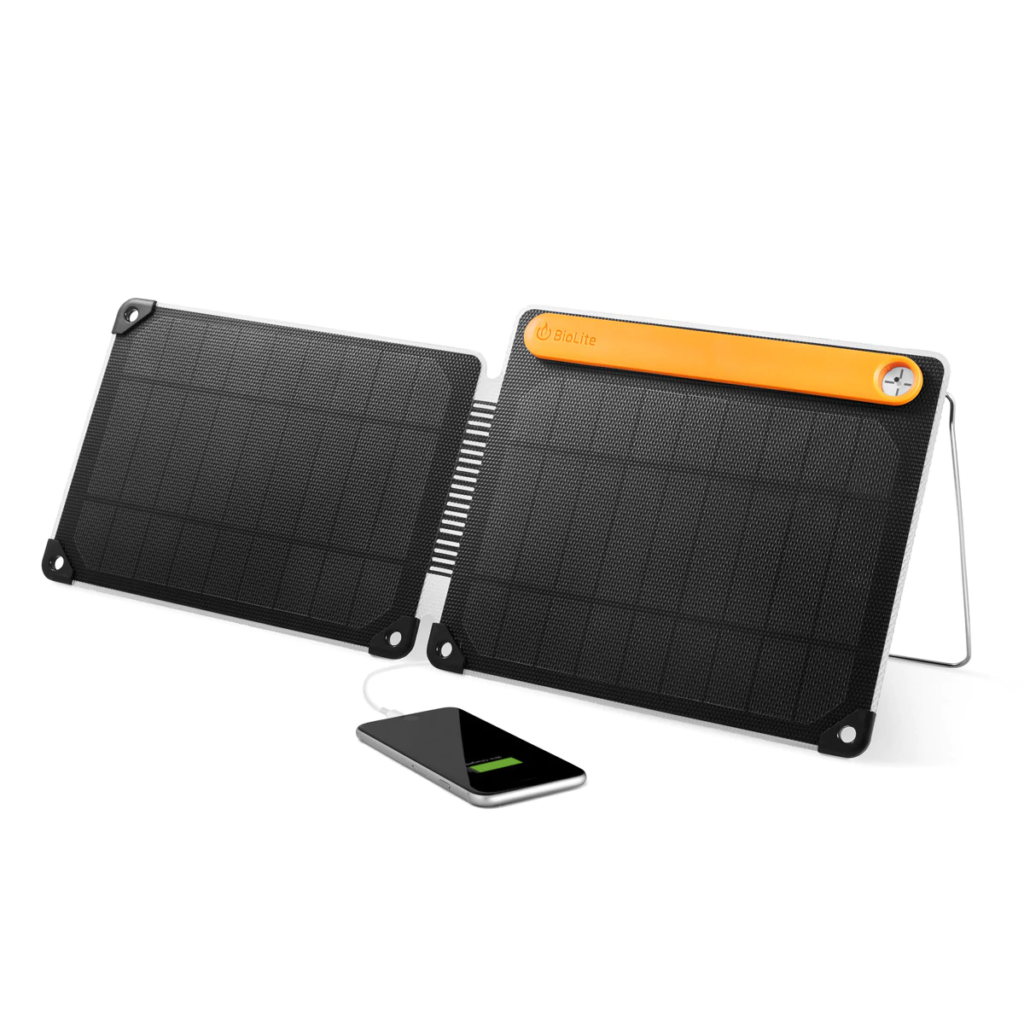
The battery controls charge, so the panel performs adequately in charging situations that aren’t ideal.
The kickstand and fold-out design are both appealing, as they’re compact and portable enough to be carried into your backpacks on most light and easy trekking trips.
Powertraveller Falcon 40
If you love to travel light, one of the best solar chargers to bring is the Powertraveller Falcon 40. The three-piece solar panels are foldable, which means you can easily fit them inside a backpack and bring it out whenever necessary.
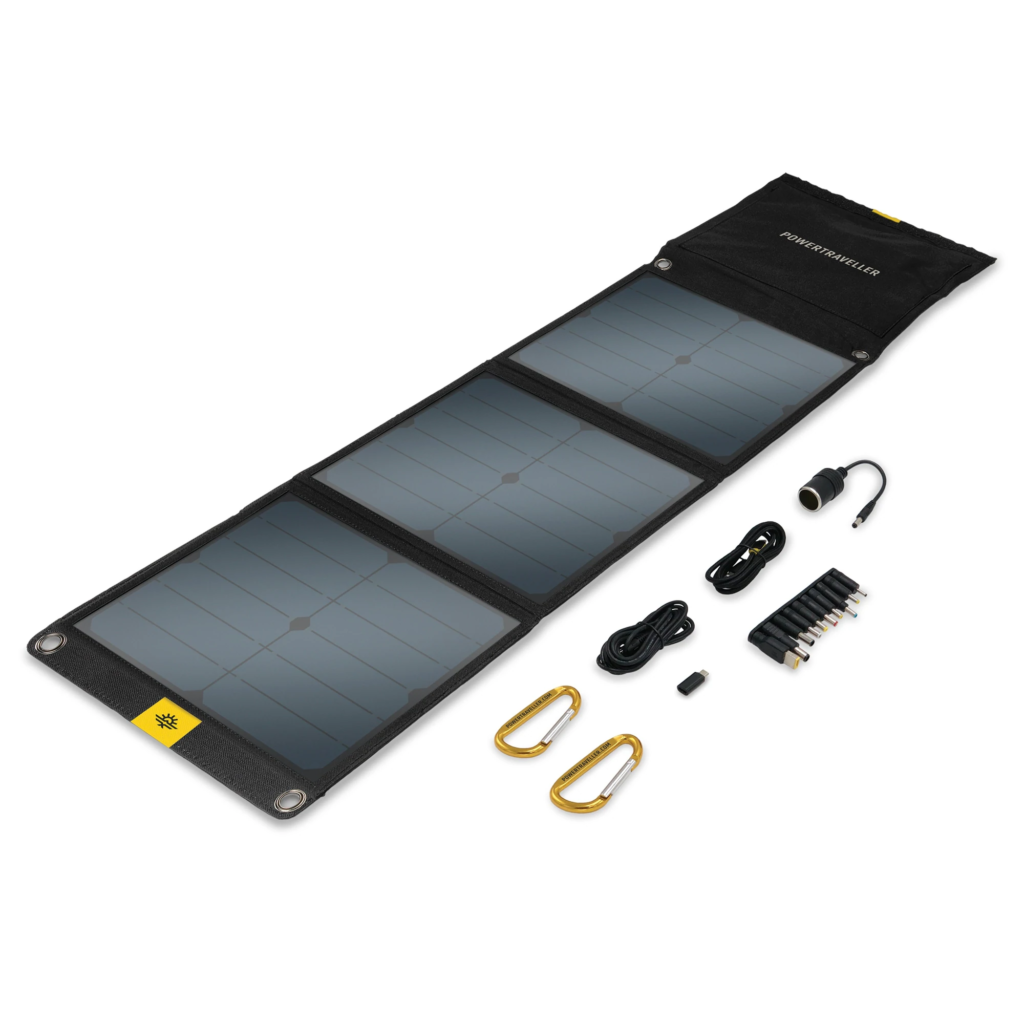
This small solar panel is perfect for recharging small portable gadgets such as smartphones, tablets, camping LED lamps, flashlights, and even portable speakers. It can trickle charge any power bank for 6 to 8 hours (depending on the weather).
Goal Zero Nomad 50
If you want to use solar power efficiently, we recommend using the Goal Zero Nomad 50 and a Goal Zero battery pack.
This 50W panel, on the other hand, is extremely efficient and functions well in low-light conditions. It’s tough and made of high-quality materials, so it has a decent overall design — as most Goal Zero items do.

It has a storage compartment and attachment points that appear to be an exaggerated version of the mid-range panels in this article.
The lack of portability makes the Nomad 50W feel a little obsolete, but it would be perfect for individuals planning on establishing a remote base camp where weight isn’t an issue.
Otherwise, the lack of mobility makes the Nomad 50W seem somewhat outdated.
How to use a portable solar charger to keep your devices fully charged?
Using a portable solar panel or charger is very straightforward. You need to connect the charger to your device via a USB cable and then place the solar panel in a sunny spot. The sun will then power the charger, which will charge your device.
However, a few things to keep in mind when using a portable solar charger.
First, it’s important to find a sunny spot. If the solar panel is positioned in a shady area, it won’t be able to generate enough power to charge your device. Most portable solar power chargers need direct sunlight to work properly.
Second, you’ll need to leave your device connected to the charger for several hours for it to reach a full charge. This means that you’ll need to have access to sunlight for a prolonged time. If you’re only going to be in a sunny spot for a short while, it might not be possible to charge your device fully.
Third, portable solar-powered chargers are typically designed for small devices such as phones and tablets, and they might not be powerful enough to charge larger devices such as laptops. If you’re looking to charge a laptop with a portable solar charger, choose one that specifically says it can handle the task.
And finally, it’s important to choose a high-quality charger designed specifically for charging devices via solar power. We all know that not all portable solar panels or chargers are created equally, and some are better than others. So, do your research before purchasing a solar charger.
Portable solar-powered chargers are an excellent way to keep your devices charged while on the go. Just remember to find a sunny spot, leave your device connected for several hours, and choose the right charger for your needs. With a little bit of planning, you’ll never have to worry about your devices running out of power again.
What are the pros and cons of using portable solar panels?
Using any technology has its advantages and disadvantages. You should learn these things thoroughly before you make your final decision to be sure that you are making the best possible choice for your needs.
Here are some things to consider when deciding if portable solar panels are right for you:
Advantages
- They are environmentally friendly.
Solar energy is a renewable resource, meaning it won’t run out the way fossil fuels will someday. And because solar panels don’t produce emissions, they’re much better for the environment than traditional power sources like coal-fired power plants.
If you want to protect flora and fauna around your area, solar panels are the best way to produce power without harming them.
- They are versatile.
Portable solar panels can power all sorts of devices, from phones and laptops to RV air conditioners and camping lights.
- They are relatively inexpensive.
Solar panels’ costs have dropped in recent years, making them more affordable than ever.
Disadvantages
- They require sunlight to work.
Solar panels need sunlight to generate power, so they won’t work properly on cloudy days. For example, this can be a problem if you’re planning to use them while camping in the woods.
- They are not always as powerful as traditional power sources.
Solar panels typically produce less power than standard electrical outlets, so they might not be able to run high-powered devices like hair dryers or space heaters.
- They can be large and bulky.
Portable solar panels come in various sizes, but the bigger ones can be quite heavy and difficult to transport.
Now that you know the pros and cons of portable solar panels, you can decide if they’re right for you. Solar panels are worth considering if you need a reliable power source for your devices and don’t mind a bit of extra weight.
Just be sure to ask around before buying, so you can find the best possible option for your needs.
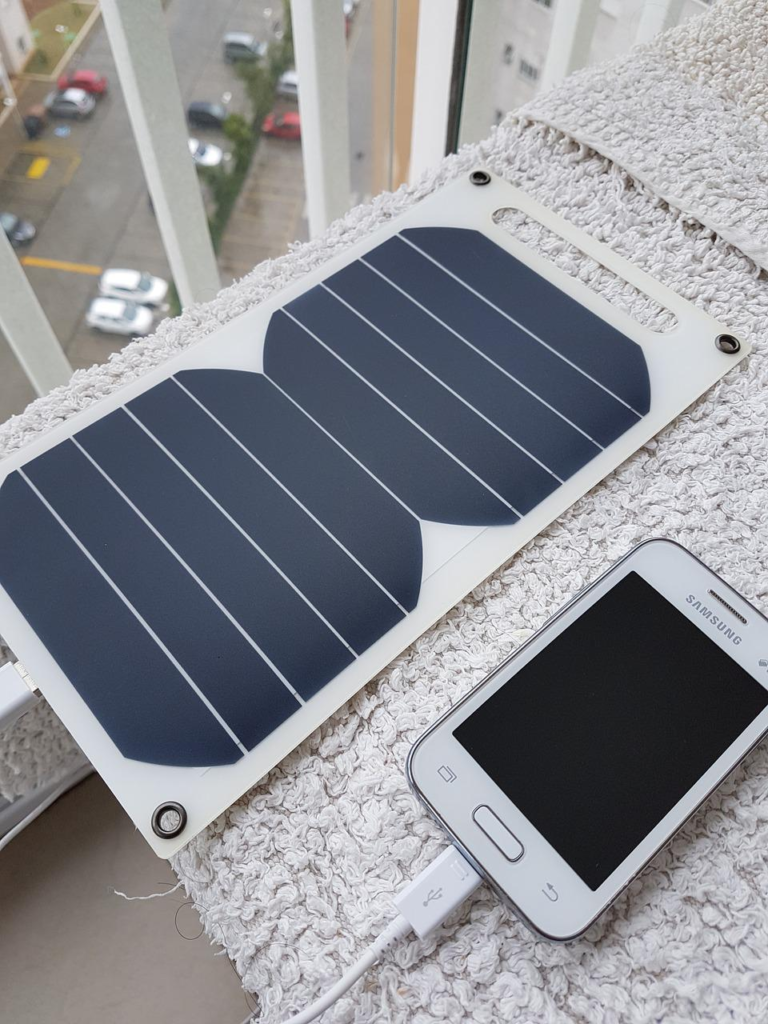
Frequently Asked Questions
Which portable solar charger is best?
The best portable solar-powered charger is the one that can connect multiple devices at the same time. It should also have a high wattage to charge your devices quickly.
Are solar panel portable chargers good?
Yes, they are!
Do portable solar panels hold a charge?
Portable solar panels do not hold a charge, and they can only convert sunlight into electricity and supply it to the device’s internal battery.
How long does it take a 25-watt solar panel to charge a battery?
If the battery is depleted, a 25-watt solar panel can usually charge it in five to eight hours. The condition of the battery will determine the entire charging time.
Which portable solar panels are best?
Here are the top five portable best solar panels (in no particular order):
- Goal Zero Nomad 50
- BioLite Solar Panel 3+
- Powertraveller Falcon 40
- Goertek 25,000 mah
- BigBlue 3
Note that all brands have their strengths and weaknesses. And, of course, the best solar panel for you may not be the best solar panel for someone else, and it all depends on your needs and preferences.
Are portable solar panels good?
Many people are underestimating the potential of portable solar panels. Portable solar panels provide a very convenient and easy way to access renewable energy without needing any installation. Just unfold them, place them under the sun, connect your gadgets, and you are good to go.
And, as technology improves, the cost of portable solar panels is dropping. You can find many budget-friendly solar panel models on the market.
So, if you are looking for a way to reduce your carbon footprint and live a more sustainable life, portable solar panels are a great option to consider.
Do solar battery chargers really work?
Yes, solar battery chargers work. Not only do they work, but they’re becoming more and more popular as people become more environmentally conscious. Solar chargers are a great way to keep your devices powered while on the go, whether you’re camping, hiking, or just spending a lot of time outdoors.
How long do portable solar batteries last?
A portable solar battery pack can last up to five days, given that you only charge one device and use it moderately.
Can I charge a laptop using portable panels?
Some portable solar panel producers claim that connecting directly to their panels will allow them to charge laptops. But in reality, it is not a good idea.
Portable solar panels are not as quick to charge devices as battery power packs, and voltage fluctuations can harm your laptop.
If you want to charge your laptop safely, you need a portable solar generator. Not only are they able to provide stable and consistent voltage, but many models also come with a variety of AC and DC outlets and USB ports to accommodate all your charging needs.
What are the benefits of using solar chargers?
There are plenty of reasons to start using solar chargers, and here are some of the most important ones:
1) You can use them practically anywhere there is sunlight – perfect for campers, hikers, and outdoor enthusiasts.
2) Solar chargers are a great way to reduce your reliance on fossil fuels and help preserve the environment.
3) By opting for a solar charger instead of a battery pack, you can save money in the long run.
4) Solar chargers keep your devices powered, even in emergencies when there is no grid power available.
How effective are portable solar panels?
Portable solar panels effectively charge devices when there is no other source of power available. They are especially useful for people who spend a lot of time outdoors, like campers and hikers.
If you like to bring electronic devices during your outdoor trips, then portable solar panels are a great option to keep them powered.
What are the different types of portable solar chargers?
There are two main types of portable solar-powered chargers: monocrystalline and polycrystalline.
Monocrystalline portable solar panels are made from a single crystal of silicon. They are more efficient than polycrystalline panels and are also more expensive.
Portable polycrystalline solar panels are made from multiple silicon crystals. However, they are less efficient than monocrystalline panels. But they are cheaper to manufacture, so they are often the more affordable option.
Do flexible solar panels hold solar power for later use?
A flexible solar panel by itself cannot hold the solar power that it was able to convert. Unless you have a separate battery pack that you can connect with the portable panels, then you will be able to store the energy for later use.

Final Words About The Right Portable Solar Chargers
Getting the right portable solar panels is worth it if you are an outdoorsy person or frequently find yourself in need of power while away from an outlet. With so many different solar chargers on the market, it can be tough to decide which one is right for you.
But by taking into consideration the factors mentioned above, you can narrow down your options and find the perfect solar charger for your needs.
Do you have any experience with portable solar-powered chargers? Let us know in the comments below!
This post has been proofread by Grammarly.
